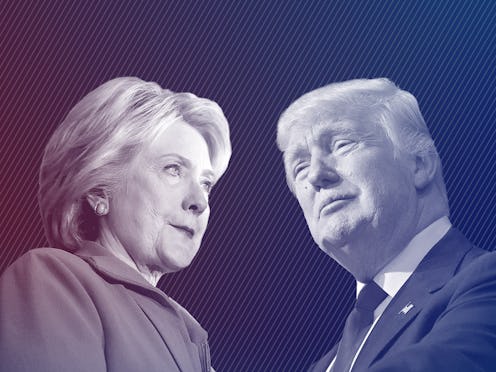News
Why You Should Recognize You're A Privileged Voter

One concept that’s been getting some attention this year the “privileged voter.” It’s a controversial term, and defining it is no simple matter. Nevertheless, it’s an absolutely crucial component of this election, and it’s important to acknowledge that you’re privileged voter if you are indeed one.
A privileged voter who doesn’t acknowledge themselves as such is failing to consider the full scope of consequences of this election. They aren’t actually assessing what the next president will mean for the country as a whole. Instead, they’re assessing what the next president will mean for them personally, and assuming that this will hold true for everybody else in the country, or ignoring the needs of others. But that’s an incorrect assumption, and it represents a deeply flawed way of viewing the presidential election.
A privileged voter is someone whose personal well-being won’t be significantly affected by the results of this election. It’s impossible to make a prediction like that with absolute certainty, of course, but there is a subset of Americans who are doing just fine, and who will almost certainly continue doing just fine regardless of who the next president is.
It’s perhaps more helpful to look at those who are decidedly not privileged voters — people whose well-being will potentially be drastically affected by the results of this election. And this covers a large portion of people, as there are many Americans whose livelihoods and even physical safety will be at legitimate risk if Donald Trump becomes president.
Muslim Americans are a perfect example of this type of voter. Trump has proposed a blanket ban on Muslim immigration to the U.S. — a policy that threatens to tear apart Muslim families across the country. More generally, he’s demonized Muslims as a group, and this has consequences. In March, a Muslim student was beaten by a man who allegedly yelled “Trump, Trump, Trump!”
That’s not the only example of Trump supporters assaulting people unprovoked, and Muslims are not the only group of Americans with valid reason to fear a Trump presidency. Hispanics too have been in Trump’s crosshairs throughout this campaign, and would face similar risks under a Trump presidency. In fact, Trump’s longstanding ties to white supremacists threaten just about everyone who isn’t white (which, in the eyes of white supremacists, would also include Jews).
In terms of those at risk based on gender, Trump has said that women who seek abortions should face “some form of punishment.” This violent rhetoric presents a risk to every American woman, as does Trump’s pledge to appoint anti-abortion justices to the Supreme Court. Meanwhile, the GOP’s longstanding opposition to pro-trans policies are a threat to every transgender person in America.
The list goes on, but here’s the point: Privileged voters don’t have to worry about any of this, because they will be protected regardless of who’s the next president. A privileged voter knows that they, personally, will be OK under the next administration, regardless of who’s in the Oval Office.
This isn’t to say that privileged voters are bad people, because by and large, nobody can control the privilege they do or don’t have. But privileged voters do have a moral obligation to consider the full range of consequences of this election, and that begins with first acknowledging their own privilege. Only then can they begin to consider how the next president will affect people who lack their privilege.
Taken in totality, Trump and the Republican Party are legitimate threats to just about everybody other than straight cisgender white men. As such, straight cis white men need to think long and hard about how their black, Muslim, Hispanic, female, and/or LGBTQ+ friends will be affected by a Trump presidency versus a Clinton one. In doing so, they’ll be stepping outside of their own perspective and truly considering how their vote will affect the country as a whole. And that’s what democracy is all about.
Image: Dawn Foster/Bustle (1)